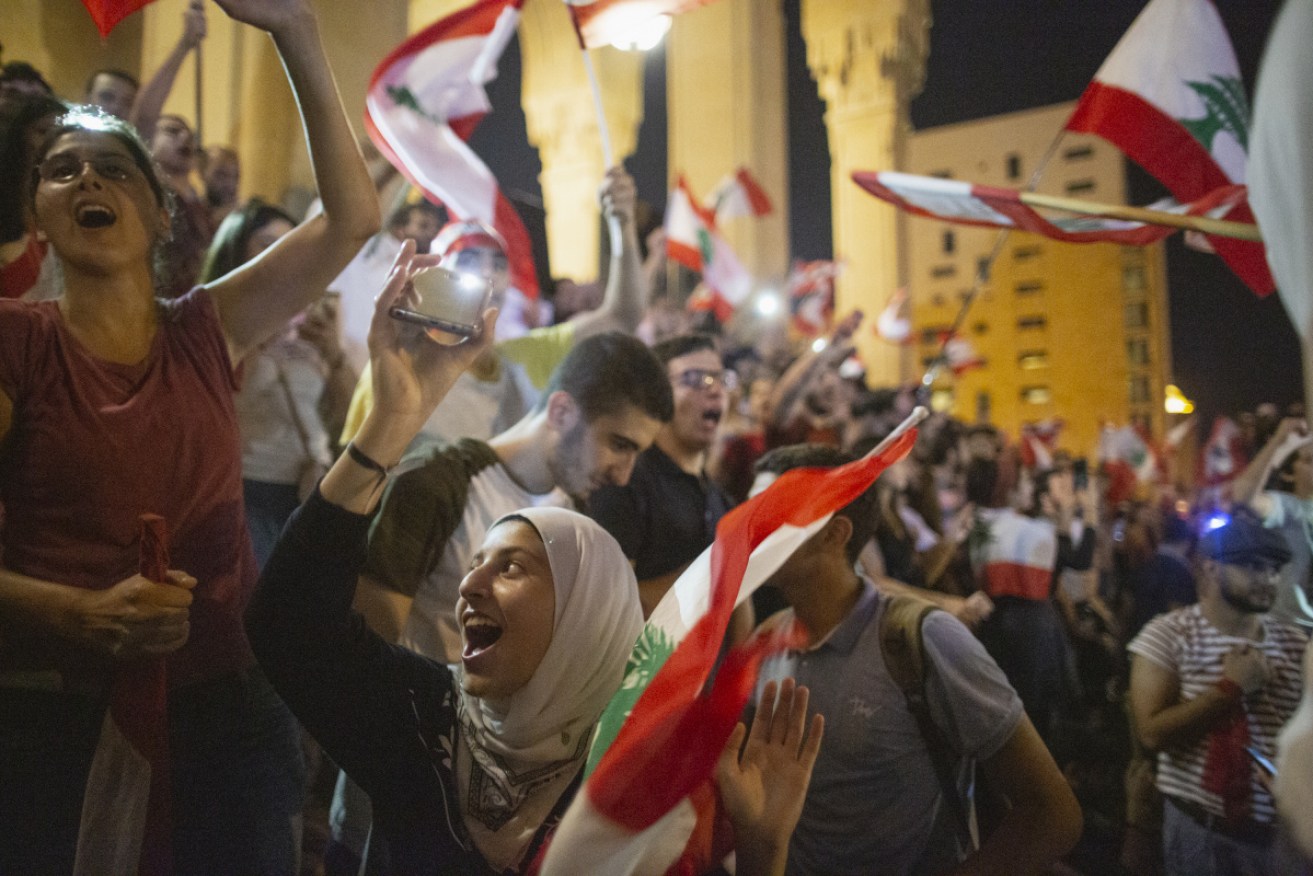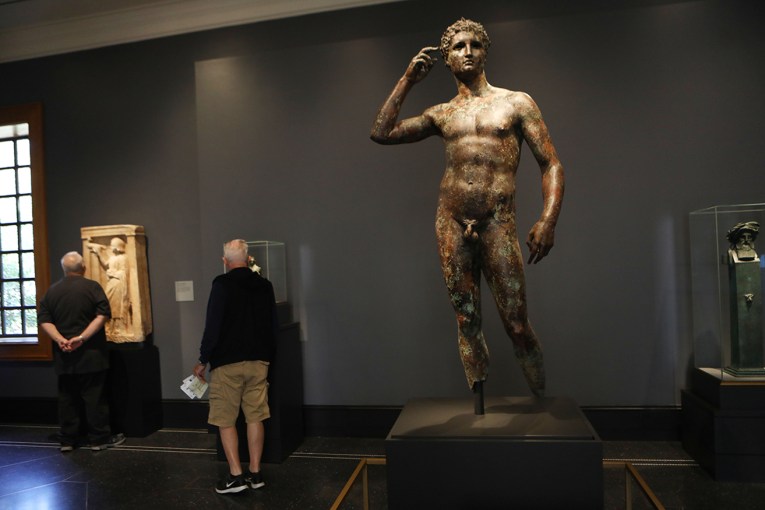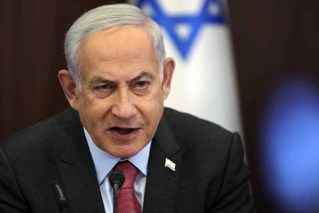Lebanon approves emergency economic reform

Protesters gather and dance during an anti-government demonstration in central Beirut. Photo: Getty
Lebanon has approved an emergency reform package in response to protests over dire economic conditions, but the moves did not go far enough to persuade demonstrators to leave the streets or investors to halt a plunge in its bonds.
Hundreds of thousands of people have flooded the streets since Thursday, furious at a political class they accuse of pushing the economy to the point of collapse. Roads were blocked for a fifth day across the country.
Schools, banks and businesses were closed, and banks are expected to remain shut on Tuesday.
Prime Minister Saad al-Hariri, in a televised speech, said the new measures might not meet the protesters’ demands but were a start towards achieving some of them. The government must work to recover trust, he said.
“You are the compass and … your movement frankly is what led us to this decision today,” added Mr Hariri, who said big steps had been taken towards fighting corruption and waste.
But despite the reforms, Lebanon’s dollar-denominated bounds suffered hefty losses on Monday following sharp drops on Friday. Some sank to record lows.
Investors said the turmoil showed Lebanon was running out of time to fix its economic problems.
“It is just a mess – and it looks like it is more and more unsustainable. I don’t think it is a final nail in the coffin – but it is looking ominous,” said Kevin Daly, Senior Investment Manager, Emerging Market Debt at Aberdeen Standard Investments.
“There has been fiscal adjustment, but it has not been enough.”
The reforms included the symbolic halving of the salaries of ministers and lawmakers, as well as moves towards implementing long-delayed measures vital to putting the public finances on a sustainable path.
Protesters sang into the night in Beirut and continued to demonstrate in other parts of the country.
“We don’t believe that they can change in two days,” said Fadi Abou Dargham, a 55-year-old jeweller.
Lebanon has one of the world’s highest levels of government debt as a share of economic output. The government includes most major parties, run by politicians widely perceived to have mobilised state resources and influence for their own gain.
The economy has been hit by political paralysis and regional conflicts, compounded by strains in the financial system that have risen as inward capital flows have slowed. Unemployment among the under 35s runs at 37 per cent.
International donors last year pledged $US11 billion to help Lebanon finance capital investment, conditional on reforms. Mr Hariri said the new decisions would satisfy donors and the government would approve within three weeks the first phase of the capital investment program.
The government approved a 2020 budget with no new taxes and a deficit of around 0.6 per cent of national output, Mr Hariri said, describing this as a historic achievement.
Lebanon’s large banking sector would contribute 5.1 trillion Lebanese pounds ($US3.4 billion) to deficit reduction, including through an increase in the tax on bank profits, Mr Hariri said.
The government would accelerate the long-delayed reform of the state-run power sector, which drains $US2 billion from the treasury per year while failing to deliver enough power for Lebanese who depend on private generators to fill the gap.
-AAP








